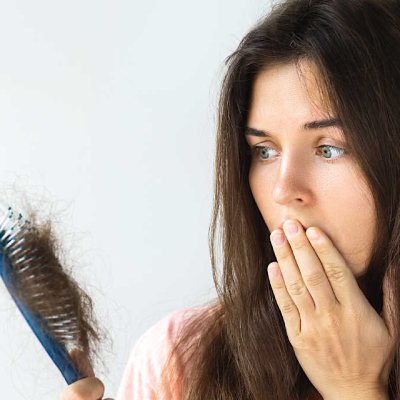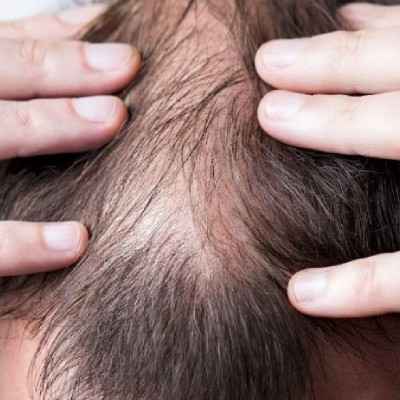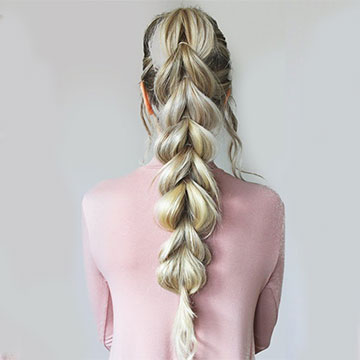Psoriasis Vs. Dandruff: What are the Signs, Causes, and Treatment

13 March 2023

moneshairexperts

Your initial thought is probably the same, "Dandruff," whether you first notice the flakes on your bare shoulders or your black clothing. One of the most prevalent skin disorders worldwide is unwanted flaking of the scalp.
Your initial thought is probably the same, "Dandruff," whether you first notice the flakes on your bare shoulders or your black clothing. One of the most prevalent skin disorders worldwide is unwanted flaking of the scalp. But occasionally, another ailment, the chronic inflammatory disorder known as scalp psoriasis, is to blame for the flaking and itching. "Patients may find it challenging to distinguish between them because examining one's scalp in such a situation is challenging. Moreover, both of them experience flaking and itching as symptoms." Here's a simple comparison to explain the differences between scalp psoriasis and typical dandruff, including their causes, symptoms, hair treatments, and when you should consult a hair specialist doctor.
What is Dandruff?
Seborrheic dermatitis, also known as dandruff, is a skin disorder that results in dry patches of the scalp flaking off. Dandruff is typically brought on by an overabundance of yeast, which causes an inflammatory reaction. A sensitivity to a hair care product is another potential cause of dandruff. Itchy flakes and irritation can result from leaving shampoo or styling products on your scalp without washing. Some shampoos, conditioners, and other products that contact the scalp may cause allergies. Dandruff has become a common problem lately as everyone has dandruff at some point in life.What is Scalp Psoriasis?
Unlike ordinary dandruff-related flakiness, scalp psoriasis is a long-lasting inflammatory disorder causing epidural cells to overproliferate. The scalp accumulates a buildup of cells due to the rapid growth of skin cells. It's what causes scalp-wide psoriasis spots. The immune system's dysregulation is unknown. By the estimates, 50% of individuals with plaque psoriasis also have psoriasis on their scalps.
Symptoms of Dandruff
An itchy scalp and prominent white skin flakes on the hair or shoulders are two symptoms of dandruff that are frequently recognized as the condition's first warning signs.
Dandruff signs could include:
- Mild redness in the scalp's afflicted area
- Greasy Scalp
- Head skin that itches
- The scalp has whitish-to-yellowish flakes.
- Skin that is dry and flaky and gets worse in cold, dry climates
- A baby's scalp is scaly and crusted (called a cradle cap)
- Skin infection brought on by frequent scratching
Symptoms of Scalp Psoriasis
The following symptoms of scalp psoriasis:
- Scaly red lumps that start little and get larger
- Scalp lesions and flakes that resemble dandruff
- Hefty crimson or white slabs that are coated in silvery scales
- Itching that frequently prompts scratching and ripping off the scales
- Significant hair loss (in severe scalp psoriasis)
Causes of Dandruffs
Although the specific dandruff cause is unknown, many specialists agree that an excess of sebum (the oil on the scalp) and an overabundance of a fungus called Malassezia yeast are to blame. This argument is based on the fact that dandruff is more prevalent at particular periods where hormone levels are known to be high, such as infancy (when cradle cap is common) and adolescence, when dandruff is frequently seen. The following factors can affect the appearance of dandruff flakes:
- Dry and cold climate (which dries the scalp)
- Using harsh cosmetic and hair products
- Shampooing the hair too frequently or insufficiently
- An inheritance of dandruff (dandruff is known to run in families)
Causes of Scalp Psoriasis
Psoriasis can affect persons of any race. However, most patients have fair skin. Studies show that 1.6% of Hispanics, 2.2% of Blacks, and 3.6% of Whites have psoriasis. Although psoriasis frequently runs in families, certain cases are not considered genetic. Psoriasis is more likely to affect someone if they have a grandparent, parent, brother, or sister who has the condition. Even though experts know psoriasis is not contagious, they are unsure of the specific etiology. They do have some knowledge of the elements that influence its growth, such as:
- White blood cells from the immune system attack the body's skin cells.
- The immune system attack causes the body to produce too many new skin cells.
- The apparent signs of psoriasis are made up of extra dead cells that are shed after each cell's life cycle (such as plaques).
Treatment of Dandruff

The severity of the problem determines how dandruff treatment is done. For instance:
- Use a mild shampoo free of harsh chemicals or other elements that dry out the scalp to cure mild dandruff at home.
- Over-the-counter dandruff shampoos containing selenium sulfide, tar, or zinc pyrithione treat moderate dandruff. Some of these shampoos are thought to have antifungal effects and aid in the elimination of skin flakes.
- A specific type of prescription shampoo or topical drugs, like the antifungal shampoo ketoconazole, may be necessary for severe dandruff. Ketoconazole is sold without a prescription in a less potent solution than shampoo.
- If dandruff is continuous after home remedies, contact a hair specialist doctor to analyze your scalp.
Treatment of Scalp Psoriasis
Psoriasis on the scalp is more difficult to treat than dandruff.
- Over-the-counter medicated shampoos can also be used for mild cases of scalp psoriasis treatment. A prescription shampoo containing corticosteroids, such as Clobex, may reduce the irritation brought on by scalp psoriasis. Moreover, corticosteroids will aid in reducing inflammation.
- When a person has severe psoriasis, systemic hair treatments, such as oral (taken by mouth) drugs like methotrexate, will most likely be used in the hair loss treatment. In particularly severe cases of psoriasis, methotrexate acts to reduce the overactive immune system that causes symptoms.
- In a severe case, a person may even undergo surgical treatments such as a hair transplant.
- Eliminating triggers such as tobacco, alcohol, stress, high temps, and infections are another component of psoriasis treatment.
When to Contact a Hair Specialist Doctor?
You should visit a hair specialist doctor if:- You've been using a dandruff shampoo for a few weeks, but the symptoms have not subsided.
- Your scalp's skin is extremely swollen and red or begins to ooze pus or fluid.
- The symptoms are no longer limited to your scalp, especially if they have moved to places in your body where you don't have hair.
- Hair loss is present along with your symptoms.
- You should speak with a hair specialist doctor whenever you get psoriasis symptoms.
- Your condition starts to flare up, or your symptoms are getting worse.
- The therapies are ineffective (either home hair regrowth treatment or prescription medication)
Conclusion
Although the symptoms and treatments of scalp psoriasis and dandruff may seem similar, these two illnesses are distinct. A doctor specializing in hair care will be able to identify your condition and counsel you on the best course of action. Make an appointment with AHS professionals if you suspect you may be suffering from one of the two illnesses so they can assess your condition and provide treatment. If the condition persists, it is recommended that you reach out to a professional & seek immediate medical help.Stay Updated
Subscribe to our email newsletter for helpful tips and valuable resourses
Be an influencer
Join forces with Advanced Hair Studio! Explore exciting collaboration opportunities tailored for influencers. Let's redefine haircare together.
Connect now












